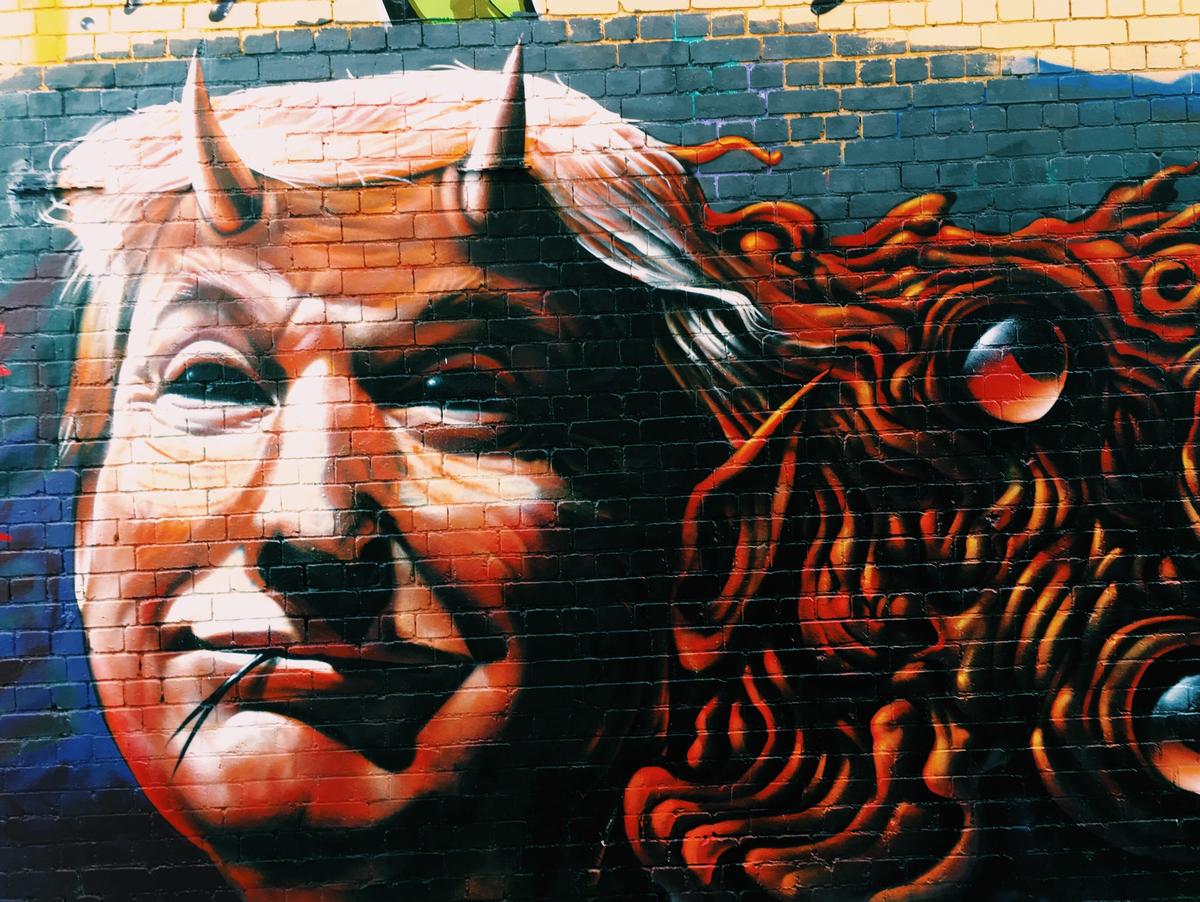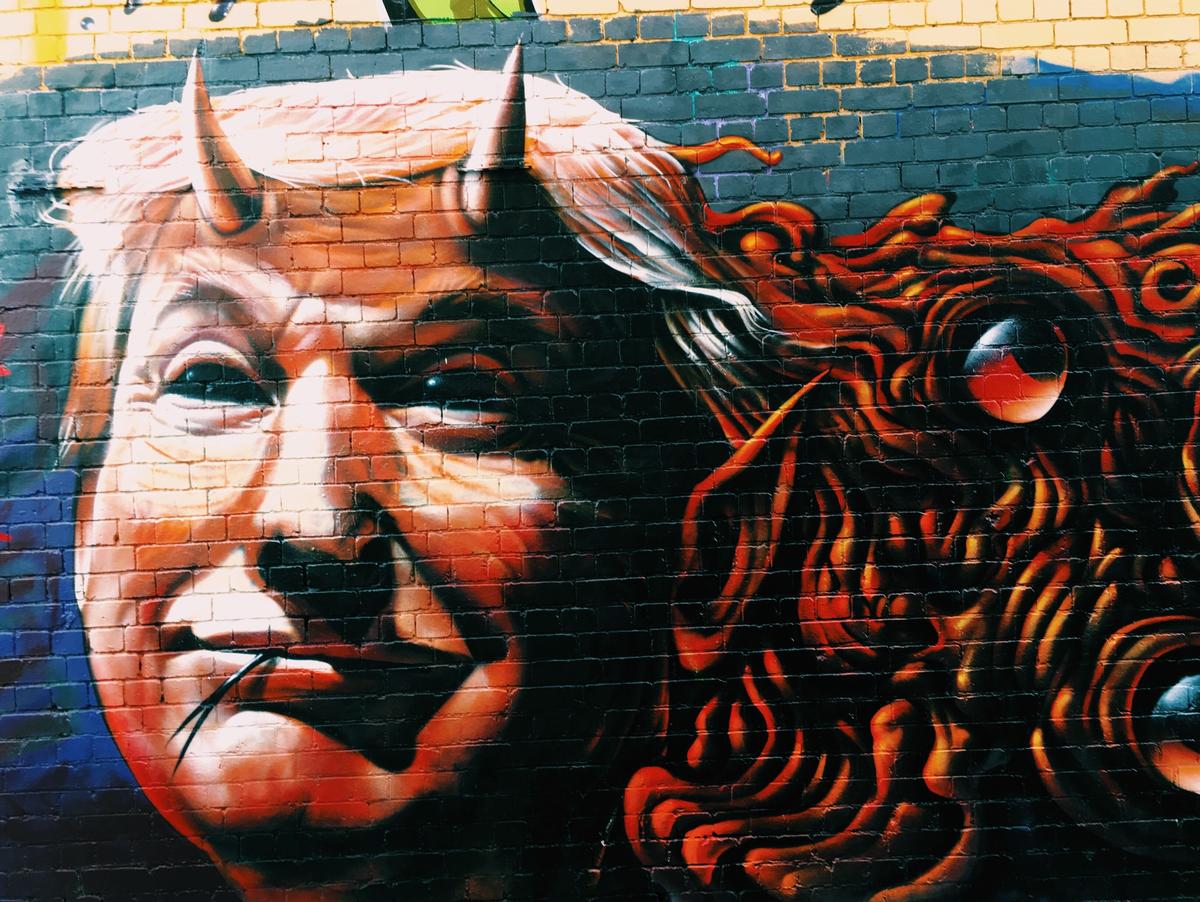Study shows mental distress for LGBTQ during Trump presidency
Mon. September 27, 2021 2:39 PM by Gerald Farinas

donald trump graffiti editorial
photo credit // unsplash jon tyson
Attacks and real threat of legislating anti-LGBTQ policies created mental harm
The academic journal Economics and Human Biology published a scientific study that found a rise in extreme mental distress among LGBTQ persons as Donald Trump rose to become, and served as, President of the United States.
Associate Prof. Masanori Kuroki of Arkansas Technical University in Russellville, Ark. and his team performed extensive research to come to these findings. It involved studying the responses of about 1.06 million Americans.
Researchers compared extreme mental distress among LGBTQ and non-LGBTQ people between 2014 and 2020, the six-year period where Trump dominated politics in America. The study found that extreme mental distress increased during this period. The increase was larger in states where Trump won.
Despite the findings, "There is little evidence that physical distress increased among [LGBTQ] people in the same period," the study said.
Trump campaigned alongside Mike Pence, a vehemently ant-LGBTQ governor of Indiana who supported discriminatory policies targeting queer Hoosiers. Trump also galvanized an Evangelical Christian base that wanted to maintain the right to prevent LGBTQ rights from being implemented in schools and the workplace.
Kuroki wanted to find scientific numbers for an obvious mental condition brewing as Trump ascended in American politics. He used information collected by the Centers for Disease Control and Prevention (CDC) Behavioral Risk Factor Surveillance System (BRFSS), an annual survey to measure the risk factors and behaviors of American adults.
The survey included a question: how many days in the past 30 days did they consider their mental health to be "not good?" An answer of one was very little mental distress and an answer of 30 was extreme mental distress.
In 2014 according to the study, extreme mental distress for LGBTQ individuals stood at 7.7 percent and non-LGBTQ individuals stood at 4.8 percent.
In 2019, that turned into 12 percent for LGBTQ persons and 5 percent for non-LGBTQ persons.
Kuroki shares that he wishes the sample came from the same group of people each year. And that a study should be done to see if these numbers improve under President Joe Biden.
Associate Prof. Masanori Kuroki of Arkansas Technical University in Russellville, Ark. and his team performed extensive research to come to these findings. It involved studying the responses of about 1.06 million Americans.
Researchers compared extreme mental distress among LGBTQ and non-LGBTQ people between 2014 and 2020, the six-year period where Trump dominated politics in America. The study found that extreme mental distress increased during this period. The increase was larger in states where Trump won.
Despite the findings, "There is little evidence that physical distress increased among [LGBTQ] people in the same period," the study said.
Trump campaigned alongside Mike Pence, a vehemently ant-LGBTQ governor of Indiana who supported discriminatory policies targeting queer Hoosiers. Trump also galvanized an Evangelical Christian base that wanted to maintain the right to prevent LGBTQ rights from being implemented in schools and the workplace.
Kuroki wanted to find scientific numbers for an obvious mental condition brewing as Trump ascended in American politics. He used information collected by the Centers for Disease Control and Prevention (CDC) Behavioral Risk Factor Surveillance System (BRFSS), an annual survey to measure the risk factors and behaviors of American adults.
The survey included a question: how many days in the past 30 days did they consider their mental health to be "not good?" An answer of one was very little mental distress and an answer of 30 was extreme mental distress.
In 2014 according to the study, extreme mental distress for LGBTQ individuals stood at 7.7 percent and non-LGBTQ individuals stood at 4.8 percent.
In 2019, that turned into 12 percent for LGBTQ persons and 5 percent for non-LGBTQ persons.
Kuroki shares that he wishes the sample came from the same group of people each year. And that a study should be done to see if these numbers improve under President Joe Biden.






